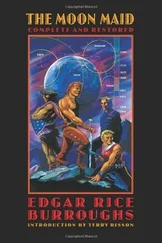Edgar Burroughs - The Lost Continent
Здесь есть возможность читать онлайн «Edgar Burroughs - The Lost Continent» весь текст электронной книги совершенно бесплатно (целиком полную версию без сокращений). В некоторых случаях можно слушать аудио, скачать через торрент в формате fb2 и присутствует краткое содержание. Жанр: Фантастика и фэнтези, на английском языке. Описание произведения, (предисловие) а так же отзывы посетителей доступны на портале библиотеки ЛибКат.
- Название:The Lost Continent
- Автор:
- Жанр:
- Год:неизвестен
- ISBN:нет данных
- Рейтинг книги:4 / 5. Голосов: 1
-
Избранное:Добавить в избранное
- Отзывы:
-
Ваша оценка:
- 80
- 1
- 2
- 3
- 4
- 5
The Lost Continent: краткое содержание, описание и аннотация
Предлагаем к чтению аннотацию, описание, краткое содержание или предисловие (зависит от того, что написал сам автор книги «The Lost Continent»). Если вы не нашли необходимую информацию о книге — напишите в комментариях, мы постараемся отыскать её.
The Lost Continent — читать онлайн бесплатно полную книгу (весь текст) целиком
Ниже представлен текст книги, разбитый по страницам. Система сохранения места последней прочитанной страницы, позволяет с удобством читать онлайн бесплатно книгу «The Lost Continent», без необходимости каждый раз заново искать на чём Вы остановились. Поставьте закладку, и сможете в любой момент перейти на страницу, на которой закончили чтение.
Интервал:
Закладка:
We marched rapidly for ten days through the heart of the ancient German empire, halting when night found us in proximity to water. Often we passed small posts similar to that at which the colonel's regiment had been quartered, finding in each instance that only a single company or troop remained for defence, the balance having been withdrawn toward the northeast, in the same direction in which we were moving.
Naturally, the colonel had not confided to me the nature of his orders. But the rapidity of our march and the fact that all available troops were being hastened toward the northeast assured me that a matter of vital importance to the dominion of Menelek XIV in that part of Europe was threatening or had already broken.
I could not believe that a simple rising of the savage tribes of whites would necessitate the mobilizing of such a force as we presently met with converging from the south into our trail. There were large bodies of cavalry and infantry, endless streams of artillery wagons and guns, and countless horse-drawn covered vehicles laden with camp equipage, munitions, and provisions.
Here, for the first time, I saw camels, great caravans of them, bearing all sorts of heavy burdens, and miles upon miles of elephants doing similar service. It was a scene of wondrous and barbaric splendor, for the men and beasts from the south were gaily caparisoned in rich colors, in marked contrast to the gray uniformed forces of the frontier, with which I had been familiar.
The rumor reached us that Menelek himself was coming, and the pitch of excitement to which this announcement raised the troops was little short of miraculous—at least, to one of my race and nationality whose rulers for centuries had been but ordinary men, holding office at the will of the people for a few brief years.
As I witnessed it, I could not but speculate upon the moral effect upon his troops of a sovereign's presence in the midst of battle. All else being equal in war between the troops of a republic and an empire, could not this exhilarated mental state, amounting almost to hysteria on the part of the imperial troops, weigh heavily against the soldiers of a president? I wonder.
But if the emperor chanced to be absent? What then? Again I wonder.
On the eleventh day we reached our destination—a walled frontier city of about twenty thousand. We passed some lakes, and crossed some old canals before entering the gates. Within, beside the frame buildings, were many built of ancient brick and well-cut stone. These, I was told, were of material taken from the ruins of the ancient city which, once, had stood upon the site of the present town.
The name of the town, translated from the Abyssinian, is New Gondar. It stands, I am convinced, upon the ruins of ancient Berlin, the one time capital of the old German empire, but except for the old building material used in the new town there is no sign of the former city.
The day after we arrived, the town was gaily decorated with flags, streamers, gorgeous rugs, and banners, for the rumor had proved true—the emperor was coming.
Colonel Belik had accorded me the greatest liberty, permitting me to go where I pleased, after my few duties had been performed. As a result of his kindness, I spent much time wandering about New Gondar, talking with the inhabitants, and exploring the city of black men.
As I had been given a semi-military uniform which bore insignia indicating that I was an officer's body servant, even the blacks treated me with a species of respect, though I could see by their manner that I was really as the dirt beneath their feet. They answered my questions civilly enough, but they would not enter into conversation with me. It was from other slaves that I learned the gossip of the city.
Troops were pouring in from the west and south, and pouring out toward the east. I asked an old slave who was sweeping the dirt into little piles in the gutters of the street where the soldiers were going. He looked at me in surprise.
"Why, to fight the yellow men, of course," he said. "They have crossed the border, and are marching toward New Gondar."
"Who will win?" I asked.
He shrugged his shoulders. "Who knows?" he said. "I hope it will be the yellow men, but Menelek is powerful—it will take many yellow men to defeat him."
Crowds were gathering along the sidewalks to view the emperor's entry into the city. I took my place among them, although I hate crowds, and I am glad that I did, for I witnessed such a spectacle of barbaric splendor as no other Pan-American has ever looked upon.
Down the broad main thoroughfare, which may once have been the historic Unter den Linden, came a brilliant cortege. At the head rode a regiment of red-coated hussars—enormous men, black as night. There were troops of riflemen mounted on camels. The emperor rode in a golden howdah upon the back of a huge elephant so covered with rich hangings and embellished with scintillating gems that scarce more than the beast's eyes and feet were visible.
Menelek was a rather gross-looking man, well past middle age, but he carried himself with an air of dignity befitting one descended in unbroken line from the Prophet—as was his claim.
His eyes were bright but crafty, and his features denoted both sensuality and cruelness. In his youth he may have been a rather fine looking black, but when I saw him his appearance was revolting—to me, at least.
Following the emperor came regiment after regiment from the various branches of the service, among them batteries of field guns mounted on elephants.
In the center of the troops following the imperial elephant marched a great caravan of slaves. The old street sweeper at my elbow told me that these were the gifts brought in from the far outlying districts by the commanding officers of the frontier posts. The majority of them were women, destined, I was told, for the harems of the emperor and his favorites. It made my old companion clench his fists to see those poor white women marching past to their horrid fates, and, though I shared his sentiments, I was as powerless to alter their destinies as he.
For a week the troops kept pouring in and out of New Gondar—in, always, from the south and west, but always toward the east. Each new contingent brought its gifts to the emperor. From the south they brought rugs and ornaments and jewels; from the west, slaves; for the commanding officers of the western frontier posts had naught else to bring.
From the number of women they brought, I judged that they knew the weakness of their imperial master.
And then soldiers commenced coming in from the east, but not with the gay assurance of those who came from the south and west—no, these others came in covered wagons, blood-soaked and suffering. They came at first in little parties of eight or ten, and then they came in fifties, in hundreds, and one day a thousand maimed and dying men were carted into New Gondar.
It was then that Menelek XIV became uneasy. For fifty years his armies had conquered wherever they had marched. At first he had led them in person, lately his presence within a hundred miles of the battle line had been sufficient for large engagements—for minor ones only the knowledge that they were fighting for the glory of their sovereign was necessary to win victories.
One morning, New Gondar was awakened by the booming of cannon. It was the first intimation that the townspeople had received that the enemy was forcing the imperial troops back upon the city. Dust covered couriers galloped in from the front. Fresh troops hastened from the city, and about noon Menelek rode out surrounded by his staff.
For three days thereafter we could hear the cannonading and the spitting of the small arms, for the battle line was scarce two leagues from New Gondar. The city was filled with wounded. Just outside, soldiers were engaged in throwing up earthworks. It was evident to the least enlightened that Menelek expected further reverses.
Читать дальшеИнтервал:
Закладка:
Похожие книги на «The Lost Continent»
Представляем Вашему вниманию похожие книги на «The Lost Continent» списком для выбора. Мы отобрали схожую по названию и смыслу литературу в надежде предоставить читателям больше вариантов отыскать новые, интересные, ещё непрочитанные произведения.
Обсуждение, отзывы о книге «The Lost Continent» и просто собственные мнения читателей. Оставьте ваши комментарии, напишите, что Вы думаете о произведении, его смысле или главных героях. Укажите что конкретно понравилось, а что нет, и почему Вы так считаете.








